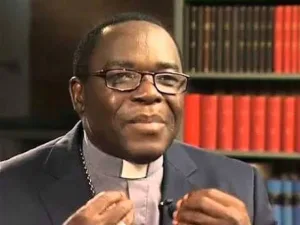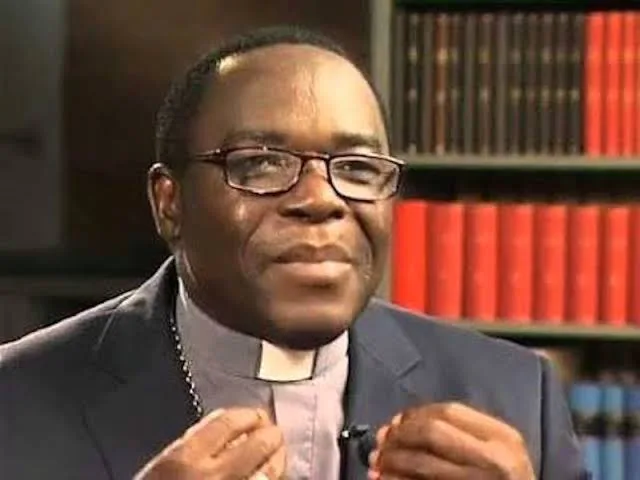The Catholic Archbishop of Sokoto Diocese, Bishop Matthew Kukah, has described President Bola Tinubu, his predecessor Muhammadu Buhari, and other past Nigerian leaders as products of an “accidental leadership cycle.”
According to Kukah, many of these leaders assumed power without adequate preparation, particularly in a world where the demands of governance are constantly evolving.
Kukah made these remarks on Sunday while delivering a keynote address during the commissioning of the new Start-Rite School building and the 4th Amaka Ndoma-Egba Memorial Lecture in Abuja.
Reflecting on Nigeria’s leadership history, Bishop Kukah highlighted a recurring pattern of unpreparedness among the country’s leaders.
“If we look at Nigeria’s leadership journey, you will find that almost every leader who came to power did so by accident,” he said. “President Tinubu, despite claiming to be prepared for the role, is clearly struggling. We are still trying to find our footing. He took over from Buhari, who had already disengaged from governance.
“Buhari succeeded Jonathan, a man who never envisioned himself as president but was thrust into leadership due to circumstances. Jonathan took over from Yar’Adua, who planned to return to teaching after his governorship.
“Yar’Adua succeeded Obasanjo, who was unexpectedly released from prison to become president. Before that, Obasanjo replaced Abacha, who was poised to rule indefinitely until nature intervened. Abacha followed Shonekan, a business executive abruptly drafted to lead the country. The cycle is evident, and the missing link in all of this is knowledge and preparation.”
Kukah argued that while Nigeria has embraced democratic principles like “one man, one vote,” its democratic process has repeatedly failed to deliver competent leadership. He stressed that modern leadership requires a deep understanding of the evolving environment and challenges.
Speaking at the event, the Chairman of the National Drug Law Enforcement Agency (NDLEA), Brig. Gen. Buba Marwa, emphasized the need to cultivate leadership qualities early in life. He attributed many of Nigeria’s challenges to failures in leadership and accountability.
Marwa also shed light on a disturbing trend within the drug trade, revealing the involvement of visually impaired individuals in trafficking illicit substances.
“Recently, the NDLEA uncovered a cartel involving visually impaired individuals,” Marwa disclosed. “We arrested a blind man transporting a large consignment of cannabis from Lagos to Kano. During interrogation, he claimed he didn’t know the package’s contents and provided the name of another blind individual in Lagos. This led us to another blind man, and eventually, we traced the ultimate handler, who was also blind.”
While Marwa refrained from sharing additional details about the cartel’s operations, he acknowledged the unique challenges posed by such cases.
Marwa also paid tribute to Senator Ndoma-Egba, Chairman of the Board of Advisory for Start-Rite School, for organizing the lecture in honor of his late wife, Amaka Ndoma-Egba.
“Amaka Ndoma-Egba was a visionary who established this school to prepare students for a dynamic and ever-changing world,” Marwa said.
Founded in 2008 with just seven pupils, Start-Rite School has grown into a leading institution in Abuja, now serving over 800 students across nursery, primary, and secondary levels.


